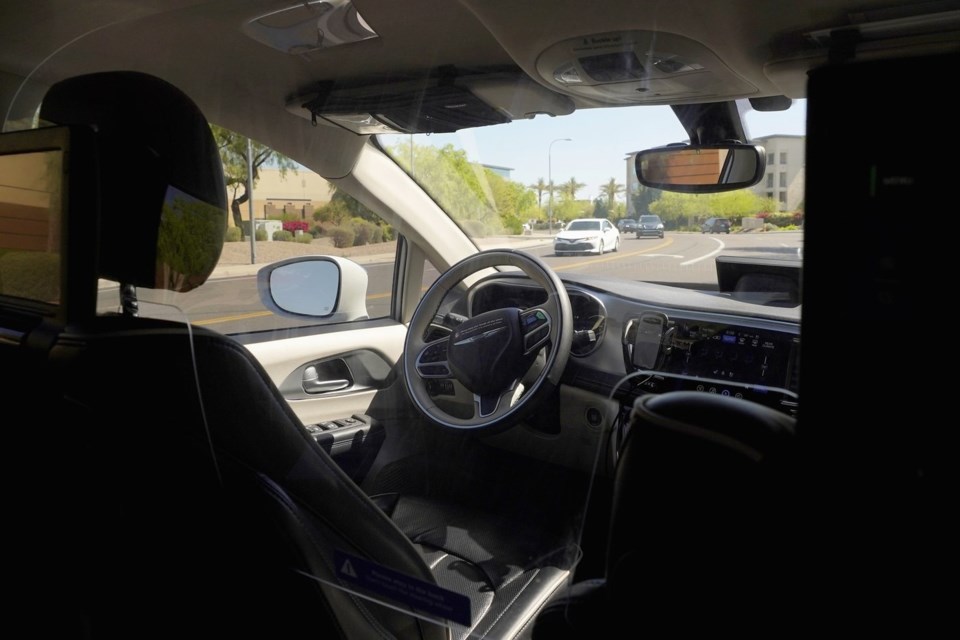DETROIT (AP) — In the waning days of President Joe Biden's administration, the government's highway safety agency is proposing voluntary safety guidelines for self-driving vehicles.
But a rule from the National Highway Traffic Safety Administration putting the plan in place won't be approved before the end of Biden's term in January and likely will be left to whoever runs the agency under Republican Donald Trump.
Tesla CEO Elon Musk, whom Trump has named to co-lead a “Department of Government Efficiency” to cut costs and regulations, has floated the idea of him helping to develop safety standards for self-driving vehicles — even though the standards would affect Tesla's automated driving systems.
At present there are no federal regulations that specifically govern autonomous vehicles, and any regulation is left to states. However, self-driving vehicles must meet broad federal safety standards that cover all passenger vehicles.
Under the agency's proposal, released on Friday, automakers and autonomous vehicle companies could enroll in a program that would require safety plans and some data reporting for autonomous vehicles operating on public roads.
To apply companies would have to have independent assessments of their automated vehicle safety processes, and there would be requirements to report crashes and other problems with the vehicles.
Companies would have to give NHTSA information and data on the safety of the design, development and operations of the vehicles. The agency would decide whether to accept companies into the program.
But auto safety advocates say the plan falls short of needed regulation for self-driving vehicles. For instance, it doesn't set specific performance standards set for the vehicles such as numbers and types of of sensors or whether the vehicles can see objects in low-visibility conditions, they said.
“This is a big bunch of nothing,” said Missy Cummings, director of the autonomy and robotics center at George Mason University and a former safety adviser to NHTSA. “It’ll be more of a completely useless paperwork drill where the companies swear they’re doing the right thing.”
Michael Brooks, executive director of the nonprofit Center for Auto Safety, said one of the few good things about the plan is that companies will have to report data on crashes and other problems. There have been reports that the Trump administration may want to scrap a NHTSA order that now requires autonomous vehicle companies to report crashes to the agency so it can collect data.
A message was left Friday seeking comment from the Trump transition team on crash reporting requirements.
Brooks said the incoming administration probably will want to put out its own version of the guidelines.
NHTSA will seek public comment on the plan for about 60 days, then the plan would have to wind its way through the federal regulatory process, which can take months or even years. The agency said it believes the plan can accelerate learning about autonomous vehicles as well as work toward future regulations.
“It is important that ADS (Automated Driving System) technology be deployed in a manner that protects the public from unreasonable safety risk while at the same time allowing for responsible development of this technology, which has the potential to advance safety,” the proposed rule says.
The agency concedes that in the future, there may be a need for NHTSA to set minimum standards for self driving vehicle performance that are similar to mandatory safety standards that govern human-driven cars. But the agency says it now doesn't have data and metrics to support those standards. The voluntary plan would help gather those, the proposal said.
Tom Krisher, The Associated Press


